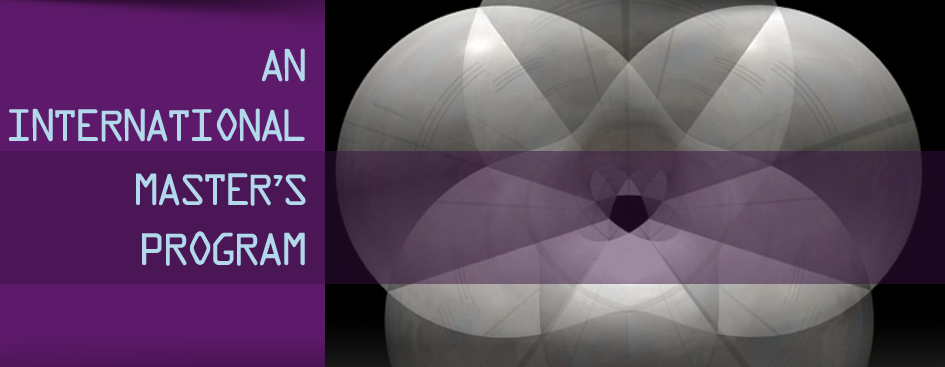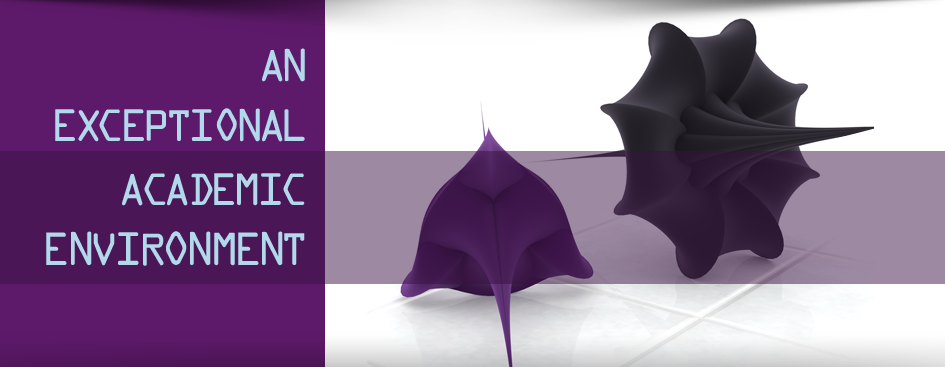The Bézout Labex specializes in research on the cutting edge between mathematics and computer science. It includes three laboratories located East of Paris in Marne-la-Vallée and Créteil – CERMICS and LAMA, which specialize in mathematics, and LIGM, which specializes in computer science. These laboratories bring together 170 active permanent researchers and a number of PhD students.
A top-level international center
Several research groups within these laboratories are leaders in France in their area of specialization, including algorithmics, combinatorics, analysis in high dimension, probabilistic modelling, multifractal analysis, differential geometry, numerical methods, financial mathematics and image processing. By fostering the cross-fertilization of ideas between mathematicians and computer scientists, the Bézout Labex serves as a top-level international center in the areas of research at the crossroads of the fields of mathematics and computer science.
Valorization of results, transfer, and expertise
One of the main objectives of the Bézout Labex is to develop solutions for major technological challenges in areas such as urban planning, engineering, telecommunications, health and medicine. The Bézout Labex also promotes the application of its research within industry and services, in areas such as imaging, telecommunications, networks, and finance.
Supporting actions
In order to reach these goals, the Bézout Labex fosters interactions between the three laboratories, and between mathematics and computer science, resulting in particular in seminars, working groups, and publications, and offers master’s scholarships, PhD fellowships, post-doctoral fellowships, invited professor positions, as well as support for the organization of conferences and a master’s track in mathematics and computer science.
Download our leaflet
 Étienne Bézout (1730-1783) was a famous French mathematician and academic during the Age of Enlightenment. Considered as the founder of algorithmics, he also played a key role in the development of science and the teaching of mathematics in France. Three mathematical concepts bear his name: Bézout’s identity, a fundamental theorem in the elementary theory of numbers; Bézout’s theorem, one of the most important concepts in algebraic geometry; and the Bézout matrix, used today in algorithms and control theory.
Étienne Bézout (1730-1783) was a famous French mathematician and academic during the Age of Enlightenment. Considered as the founder of algorithmics, he also played a key role in the development of science and the teaching of mathematics in France. Three mathematical concepts bear his name: Bézout’s identity, a fundamental theorem in the elementary theory of numbers; Bézout’s theorem, one of the most important concepts in algebraic geometry; and the Bézout matrix, used today in algorithms and control theory. In 2010, the French government launched the “Investing for the Future” program and began investing heavily in research. This program led to the development of several projects including the creation of what are now called “Laboratories of Excellence.” The goal of the Labex program is to select renowned French research laboratories and offer them additional resources so they can become more competitive in the international arena. The laboratories that have been selected use an integrated approach that combines research, training and concrete applications for industry.
In 2010, the French government launched the “Investing for the Future” program and began investing heavily in research. This program led to the development of several projects including the creation of what are now called “Laboratories of Excellence.” The goal of the Labex program is to select renowned French research laboratories and offer them additional resources so they can become more competitive in the international arena. The laboratories that have been selected use an integrated approach that combines research, training and concrete applications for industry.



